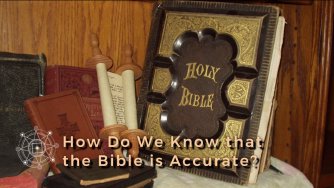The Book of Mormon teaches that after the apostles wrote the Scriptures, the early Church—particularly the Catholic Church—removed “many parts which are plain and most precious” from the gospel (1 Nephi 13:26). But is this claim historically or biblically accurate? The Bible itself assures us of the enduring nature of God’s Word. Jesus declared, “Heaven and earth shall pass away, but my words shall not pass away” (Matthew 24:35), affirming that His teachings would remain intact for all generations. The apostle Peter also warned against human tampering, writing that Scripture is “more sure … than even your own experience” (2 Peter 1:19) and that no prophecy of Scripture is of private interpretation, but comes from God (2 Peter 1:20).
This video examines the historical evidence for the reliability of the biblical manuscripts, including the careful preservation of texts through the centuries and the consistency of thousands of ancient manuscripts. We also explore why the Christian faith trusts the Bible as the authoritative Word of God, in contrast to claims of corruption found in the Book of Mormon.
If Scripture truly is preserved as God promised, then who should we believe—Jesus Christ, who guaranteed the endurance of His Word, or the Book of Mormon, which accuses the early Church of widespread tampering? Discover what history, archaeology, and Scripture collectively reveal about the trustworthiness of God’s Word.
References: Matthew 24:35; 2 Peter 1:19–21; Psalm 12:6–7; Isaiah 40:8.









